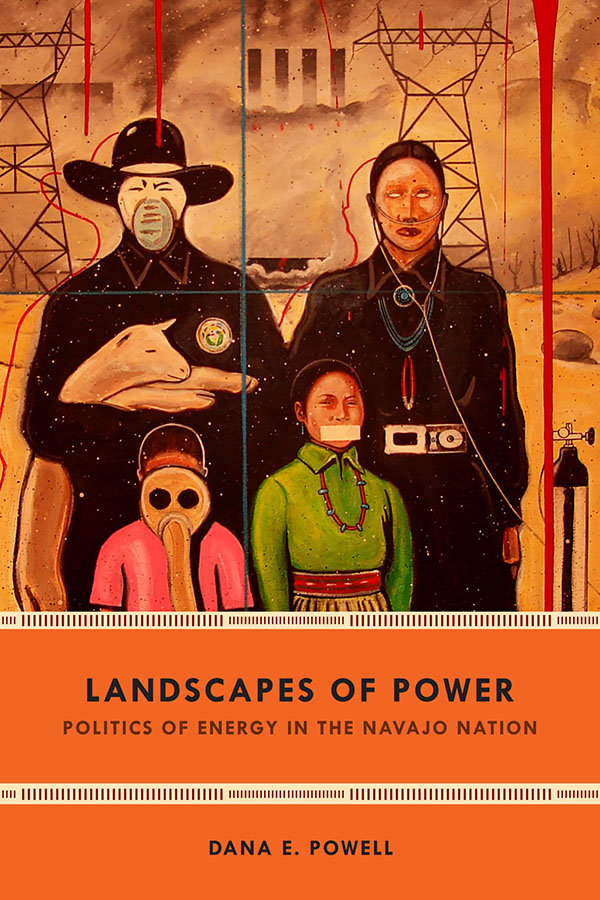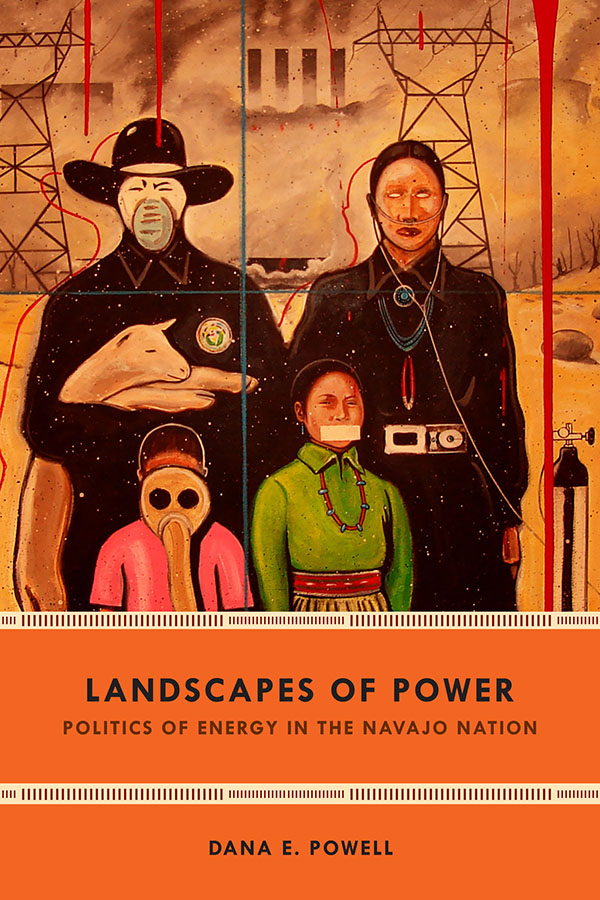BOONE, N.C. — “Landscapes of Power: Politics of Energy in the Navajo Nation” — the debut book by Dr. Dana E. Powell, assistant professor in Appalachian State University’s Department of Anthropology — was published by Duke University Press (DUP) in January.
Her book is part of the press’ “New Ecologies for the Twenty-First Century” series, which “addresses … critical conversations in academic fields about nature, globalization, and culture-inducing constructive engagements among the natural, social and humans sciences; and intellectual-political conversations in social movements and among other nonacademic actors about environment and social change,” according to Duke University Press.
In its description of “Landscapes of Power,” Duke University Press said, “Powell examines the rise and fall of the controversial Desert Rock Power Plant initiative in New Mexico to trace the political conflicts surrounding native sovereignty and contemporary energy development on Navajo (Diné) Nation land.
“Powell’s historical and ethnographic account shows how the coal-fired power plant project’s defeat provided the basis for redefining the legacies of colonialism, mineral extraction, and environmentalism.”
In her commentary on “Landscapes of Power: Politics of Energy in the Navajo Nation,” Jessica R. Cattelino — author of “High Stakes: Florida Seminole Gaming and Sovereignty” and associate professor in UCLA’s Department of Anthropology — said, “Expertly tracing the legacy of the thwarted Desert Rock project, Dana E. Powell identifies an ethical project among Navajo activists that signals politics beyond straightforward environmentalism — a politics that matters for Navajo sovereignty, territory, and ethical ways of life, as well as for energy activism and policy everywhere.
“As with #NoDAPL and Standing Rock, the Desert Rock struggle goes to the core of what politics look like within, across, and in solidarity with Indian Country. This is essential reading.”
Powell’s book is available from Duke University Press in hardcover and paperback formats, and in e-book format from sellers Amazon and Barnes & Noble. Two copies of the book will also be available within the Main Stacks of Appalachian’s Belk Library and Information Commons.
About Dr. Dana E. Powell
Powell completed her undergraduate work at Guilford College, in Greensboro, earning a B.A. with honors in religious studies. After working for seven years with locally and nationally focused social and environmental justice groups based in Atlanta, Georgia, Powell undertook graduate study in anthropology at the University of North Carolina at Chapel Hill (UNC Chapel Hill), where she worked with Dr. Dorothy Holland and Dr. Arturo Escobar.
Powell received external grants for graduate study and dissertation research from a three-year National Science Foundation (NSF) Graduate Research Fellowship, a NSF Doctoral Dissertation Improvement Grant, a Wenner-Gren Foundation Dissertation Fieldwork Award, a Jacobs Fund Dissertation Fieldwork Award and as a Sequoyah Fellow of the Royster Society of Fellows at UNC Chapel Hill.
She joined the faculty in the Department of Anthropology at Appalachian in fall 2017, where she designed and still directs the department’s program in social practice and sustainability, and teaches courses in sociocultural and environmental anthropology.
Powell has a long-term collaboration with the environmental justice organization Diné Citizens Against Ruining our Environment, as well as with scholars at the Diné Policy Institute, and is working with partners in developing a new project, building off the recent Standing Rock Sioux Tribe/No Dakota Access Pipeline movement to consider its refractions within Diné conceptions of the relations between water, life and infrastructure. The new project is supported by grants from Appalachian’s University Research Council and the Department of Anthropology’s Claassen Research Enhancement Award.
What do you think?
Share your feedback on this story.
About the Department of Anthropology
The Department of Anthropology offers a comparative and holistic approach to the study of the human experience. The anthropological perspective provides a broad understanding of the origins as well as the meaning of physical and cultural diversity in the world — past, present and future. Learn more at https://anthro.appstate.edu.
About the College of Arts and Sciences
The College of Arts and Sciences (CAS) at Appalachian State University is home to 17 academic departments, two centers and one residential college. These units span the humanities and the social, mathematical and natural sciences. CAS aims to develop a distinctive identity built upon our university's strengths, traditions and locations. The college’s values lie not only in service to the university and local community, but through inspiring, training, educating and sustaining the development of its students as global citizens. More than 6,800 student majors are enrolled in the college. As the college is also largely responsible for implementing App State’s general education curriculum, it is heavily involved in the education of all students at the university, including those pursuing majors in other colleges. Learn more at https://cas.appstate.edu.
About Appalachian State University
As a premier public institution, Appalachian State University prepares students to lead purposeful lives. App State is one of 17 campuses in the University of North Carolina System, with a national reputation for innovative teaching and opening access to a high-quality, cost-effective education. The university enrolls more than 21,000 students, has a low student-to-faculty ratio and offers more than 150 undergraduate and 80 graduate majors at its Boone and Hickory campuses and through App State Online. Learn more at https://www.appstate.edu.








![How NCInnovation Is Rethinking Economic Development in North Carolina [faculty featured]](/_images/_posts/2026/02/rethinking-economic-development-600x400.jpg)







